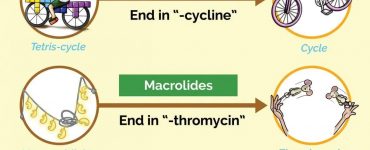The USMLE (United States Medical Licensing Examination) Step 1 exam is likely at the forefront of every new medical student’s mind. This exam assesses the student’s understanding of and ability to apply scientific concepts from biochemistry, the behavioral sciences, microbiology, immunology, pathology, nutrition, genetics, aging, pharmacology and physiology. The mastery of these subjects creates the foundation of medical practice. But due to the vast amount of knowledge needed to pass, it’s easy to see why students have Step 1 anxiety.
What should I expect from USMLE Step 1?
Step 1 will cover two basic dimensions of medicine: system and process. Its emphasis is on principles and mechanisms of health, disease, and modes of therapy. It is an 8-hour test, usually taken at the end of the second year of medical school. US med students will typically have 45-90 days between second year final exams and Step 1 to study. The exam consists of up to 280 total questions within seven 60-minute blocks of questions. The number of questions per block varies, with a maximum of 40 questions per block. On test day, students are allowed a total of 45 minutes in breaks, which may be divided and taken between completed test blocks.
Is USMLE more difficult than MCAT?
While MCAT tests learned material from pre-med undergrad courses, Step 1 questions focus on content learned during medical school and residency. So naturally, expect Step 1 to be more difficult.
How do I prepare academically?
Preparation, in one form or another, should start in the first year of medical school. As the Step 1 test date approaches, students should devote 8-12 hours each day during the 5-6 weeks leading up to the exam, while taking off from studies on weekends. If shorter study days are preferred, you can devote 6-8 hours to studying, 6 days each week. When this process begins, consider this your full-time job.
What should my study days look like?
You should structure your days in a way that will bring you the most effective benefits. If you tend to be more focused in the mornings, tackle more difficult or weaker subject areas then. If you gain focus as the day progresses, adjust the content to take advantage of that. Either way, plan to devote a full day to test prep, from about 8 am to 9 pm.
This is an example of what your day may look like. But as mentioned above, just be sure to adapt this schedule to fit your own needs, strengths and preferences:
- Morning: Read First Aid, reading each section twice. Don’t be tempted to rush through it. Take notes as you progress, and make sure you thoroughly understand all the content you are reading.
- Afternoon: Answer questions from the online test prep source of your choice. This will be extremely valuable in determining what material you’ve grasped and what you should devote more study time to. Expect to answer 50 questions each session during these 3-4 hours. Create flash cards as you go that contain the questions you missed. If flash cards aren’t your thing, use whatever method you’d like: an excel spreadsheet or notebook will do just fine. Just don’t underestimate the importance of answering test prep questions, despite the time it will take. UMSLE offers practice exams that can be useful, as well.
- Late Afternoon: Review the questions you just answered in order to strengthen recall of that material, while placing more focus on the questions you missed. Resist the urge to avoid the frustration of more difficult material.
- Evening: During these 2 hours, complete further review and access supplemental learning from the online platform of your choice. At least one hour of this time should be devoted to reviewing the flashcards you created from test prep questions. Review and repetition at the end of the day will help you have better recall on test day.
Stay on track.
In the months prior to Step 1, test day may seem an eternity away, but be sure to take advantage of each day you have available to study. If you didn’t complete much study time on one particular day, resolve to start fresh the next day and strictly adhere to your planned study time. Distractions are your worst enemy, so keep your environment study friendly. Keep your end goal in mind and understand that getting there will consist of studying in those minutes and hours you’d probably rather be doing something else. The future doc in you will say “thanks” for remaining diligent, even when it wasn’t fun.
What are the most effective study techniques?
It bears repeating: test prep questions and repetition are important. About 60% of your study time should involve answering test questions and reviewing them. About 4-5 weeks before Step 1, increase that percentage to 75-80%. When answering test prep questions, don’t be discouraged when there are fluctuations in your scores. One day you may miss more questions than on another day, but don’t let this undermine your confidence. The more test prep questions you miss, the more opportunity you’ll have to correct them ahead of time – before you take Step 1. The other 40% of your day should be spent reading, reviewing materials or watching videos that further explain a difficult concept. There are a number of sources online that list commonly missed Step 1 questions, so make sure to review those, as well. Despite how exhausting the months prior to Step 1 will be, you’ll eventually become accustomed to the study routine, and that habit can get you through when you are tempted to skip the prep.
Grow your memorization skills.
Due to the overwhelming volume of knowledge on which you’ll be tested, memorization of medical concepts is necessary for success. Connecting newly learned information with already known information will help cement concepts into your mind. Acronyms and mnemonics are commonly used to enhance recall, and as mentioned above, flashcards can also be extremely effective for increasing your memorization skills.
“Memory palace method” involves visualizing taking a walk while encountering signposts or other physical objects along the way that represent concepts you need to remember in a sequential manner.
Another technique, “link and story connection,” uses “stories” to make concepts more memorable. The more outlandish the story, the more memorable the information in it will be. Memory is largely visual, so use whatever technique you can to “see” it in your mind. Each of these memory cues can help you better recall information on test day.
Take rest days.
Although it may seem counterintuitive, it’s important to schedule rest days. Your mind will become fatigued, just as your body does. A pro athlete would never train the same muscle group day after day without allowing those muscles to rest and repair. If they refused to rest, they would risk overtraining and the injury that comes with it. If you don’t take at least one day each week to decompress, you’re unlikely to absorb or recall the material you’ve been focused on throughout the week. Like the saying goes, preparation for Step 1 is a marathon, not a race. Taking a full day to rest in the middle of dedicated studying, if not two full days, is crucial to your long-term success.
How do I leave my Step 1 Anxiety Behind?
Visualization has been shown to be very effective for improving performance in athletes, so visualize yourself being a successful test taker. Picture yourself sitting in the test room, feeling calm and confident that you’re selecting the correct answers.

Mental health suffers when physical health suffers, so make sure you get enough sleep the week before testing, avoid heavy, unhealthy food, drink plenty of water, and get some sunshine on your face. Hang out with your friends and those who believe in you.
Avoid anything – or anyone – who might undermine your confidence. Practice breathing slowly and deeply for several minutes each hour to reduce your anxiety.
The week before Step 1, adjust your sleep/wake schedule to coincide with the time you will be taking the test. Practice how you want the day to go when you take Step 1, so that on test day, nothing will seem out of the ordinary.
Before heading out on test day, make sure you’ve eaten a small meal with protein and complex carbohydrates, and avoid excessive caffeine and sugar. All these things will work together to ensure you are mentally – and physically – prepared for test day.
Learn from others’ mistakes.
Some of the most common reasons for failing Step 1 include “cramming” for the test instead of scheduling reasonable study intervals, prioritizing other things before studying, and using an excessive number of study resources. Although every test consists of a different combination of questions, several subjects are worth spending more study time on.
According to Dr. Christopher Cimino, MD, CMO at Kaplan Medical, “The general wisdom is that Step 1 has a significant portion of the test on physiology, pharmacology and pathology. And some questions will have a combo of two or all three as part of the question.”
What if I fail Step 1?
Put it in perspective. While you’re waiting those 3-4 weeks for your test results, you may be wondering: what if I failed? Be assured that most students who take Step 1 do pass. According to USMLE, of the students who took Step 1 in 2018, 95% passed. In 2020, 19,772 of those seeking MD degrees were tested, and 98% of them passed. In the same year, 571 repeat exams were offered, and 67% passed Step 1 on the second try. Combine the two, and you’ll see that a great majority of students pass Step 1 within two attempts.
Schedule a re-take. You can take Step 1 up to three times within 12 months, providing there are at least 12 months between your first attempt, and it is scheduled at least 6 months after your most recent attempt.
Figure out what went wrong. Even if you fail Step 1 on the first try, that experience will give you valuable information about the changes you will need to make to your studying and testing strategies. If you do this, you will no doubt feel better equipped the second time.














